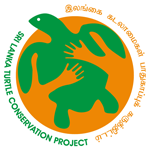
The dugong (Dugong dugon) is the only herbivorous marine mammal. A single adult dugong can grow up to three meters, weigh up to 500 kilograms and live for 70 years. Dugongs can remain underwater for 3 to 12 minutes while feeding and traveling. They can eat up to 40 kilograms of seagrass per day. Dugongs are seagrass community specialists, and their range is broadly coincident with the distribution of seagrass in the tropical and sub-tropical Indo-West Pacific. Dugongs occur in over 40 countries in the Indian Ocean and western Pacific Ocean and can move into different home ranges, traveling hundreds of kilometers in a few days. Despite being able to travel long distances, dugong populations are declining across their range. It is estimated that populations have suffered a global decline of approximately 20% over the last century, largely due to human activities. Dugongs are the world’s only vegetarian marine mammal and are reliant on seagrass for food. Seagrass ecosystems with dugongs indicate a healthy ecosystem.
SLTCP partnered up with the GEF Dugong and Seagrass Conservation Project. This global multi-country project worked in 8 nations of the Indo-pacific region, including Sri Lanka. Indonesia, Madagascar, Malaysia, Mozambique, Solomon Islands, Timor- Leste and Vanuatu also participated in the Dugong and Seagrass Conservation project by enhancing the conservation effectiveness of Seagrass Ecosystems and supporting Globally Significant populations of Dugongs across the Indian and Pacific Ocean basins through community development.
Objective
Being one of the six project partners in Sri Lanka, Sri Lanka Turtle Conservation Project’s (SLTCP) objective is to provide incentives to local communities in return for wise stewardship of coastal habitats.
Our Projects
SLTCP ran its project based in Kalpitiya. Kalpitiya is in the North-western coast of the island in the peninsula of Puttalam lagoon. The Puttalam lagoon is a large lagoon with a large extent of the Seagrass community in Sri Lanka. References say that there had been a significant population of Dugongs in this area including the Gulf of Mannar. We selected 6 localities alongside the Puttalam lagoon to initiate our Dugong and Seagrass project portion. Among them, 2 localities are in the mainland, while the rest of the sites are in the lagoon peninsula.
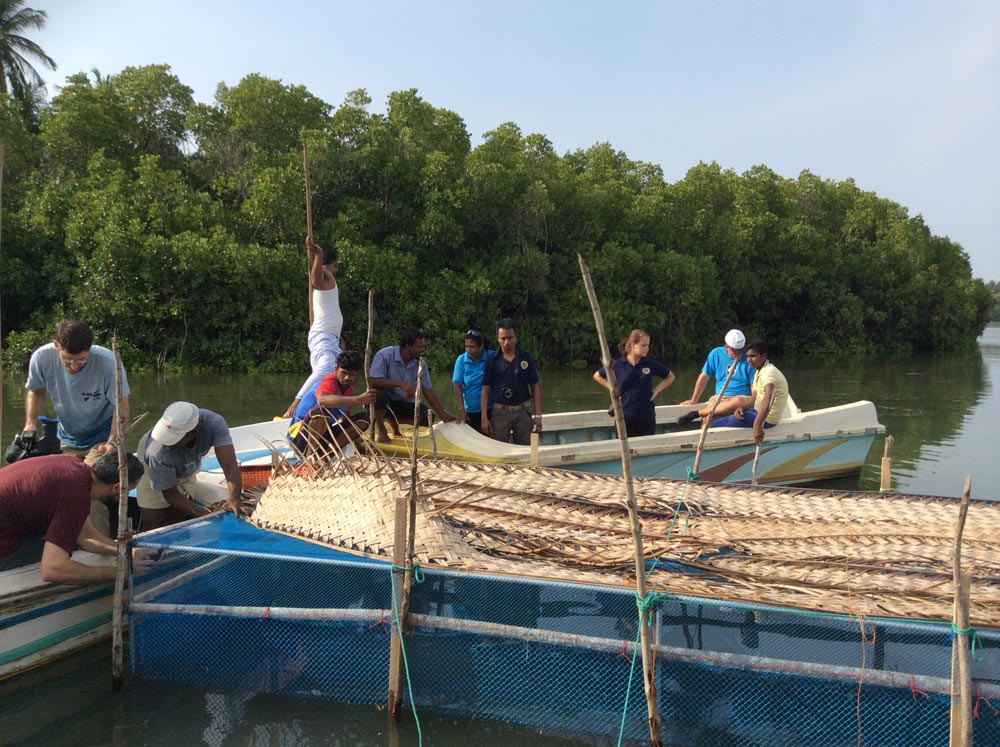
Sotthupitiya
Sotthupitiya, located near Puttalam lagoon is an ideal place for Sea Bass cultivation. Sea Bass is a marine fish that has a fast growth rate. Therefore, five Sea Bass pens have been funded and constructed as there is a good demand for this species.
It was identified that there was a shortage of sanitary facilities in this village. Therefore, SLTCP funded the construction of five toilets to facilitate good sanitary practices in the community. Further, seven sewing machines have been distributed and the necessary training on major sewing principles and the making of cotton bags were given to the women in the area to promote sustainable living.
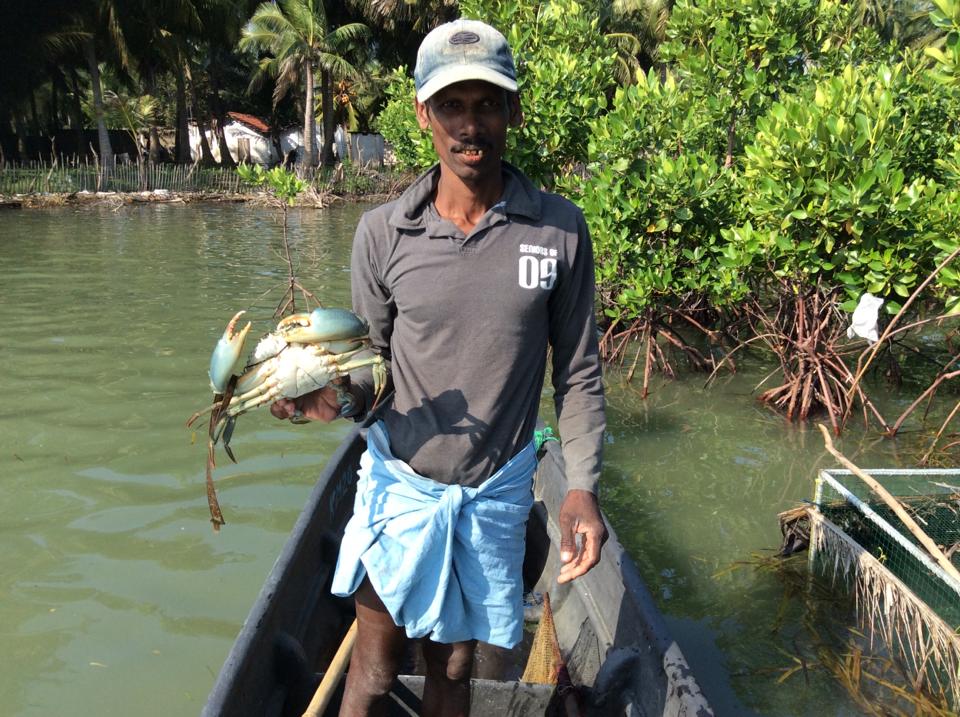
Palliwasathurei
Crab culture is a method adopted to minimize wastage of harvest. Fishermen’s harvest usually contains a less demanding portion. This is the crab population that is in the process of shedding their shell. These are in the intermediate stage and can’t be sold at a good price, making only a third of the original price. Such harvest is normally released back to the lagoon; fishermen find this a waste of time and effort. Crab cages are used to keep that soft-shelled harvest for 15 days until it becomes a proper harvest. At the same time, other immature crabs are also kept in cages for months to get a good quality harvest, later. We gave monetary support to construct 6 cages, which are now completed and functioning.
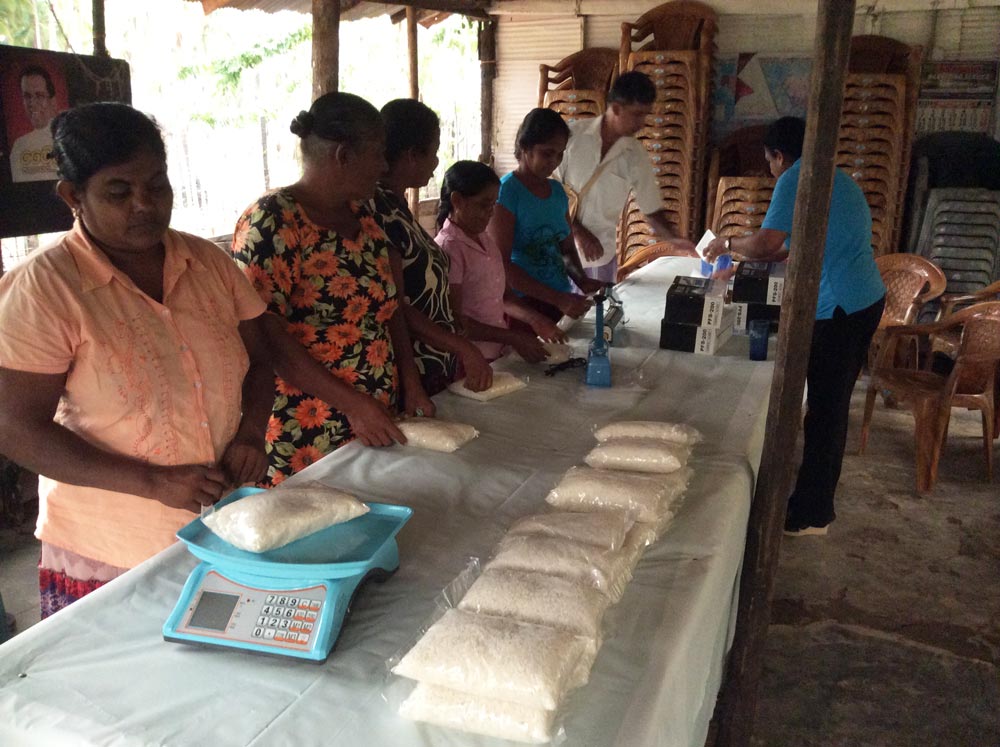
Anawasala
In Anawasala SLTCP has initiated a salt packaging business as requested by the fisheries community leaders. Being so close to one of the major salterns of the island, it proved to be a good incentive. Furthermore, we have funded packaging material for the initial production which will benefit 10 families as material and training have been given to housewives of those families. Further, 10 illegal push nets have been replaced with legally accepted proper fishing nets.
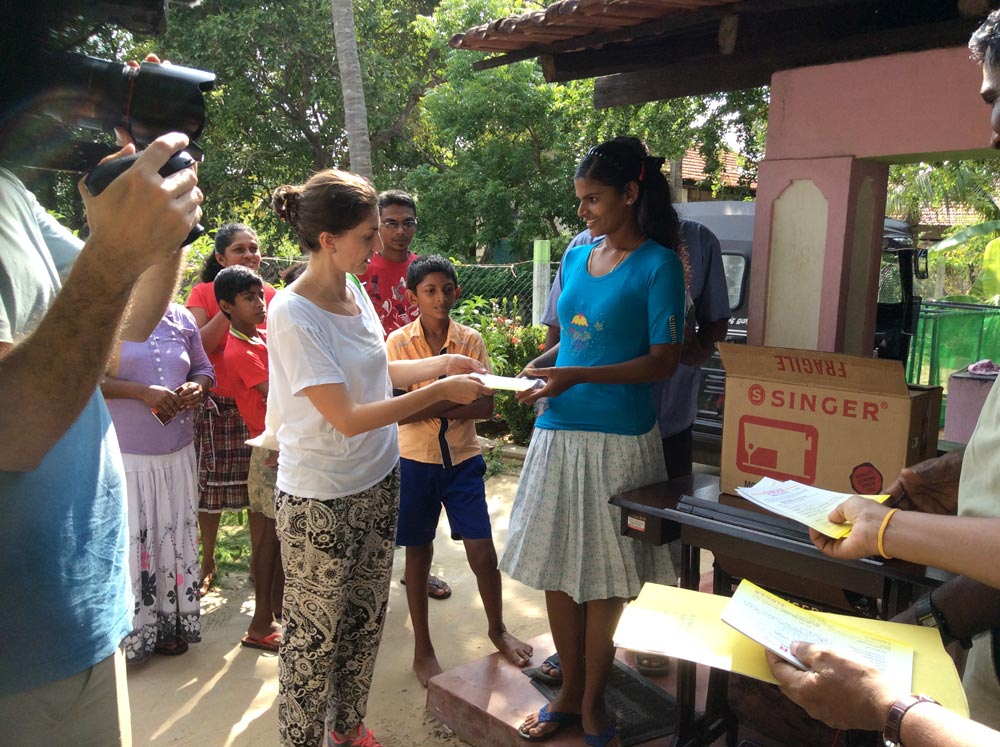
Serakkuliya
A sewing training programme has been launched for the women in the Serakkuliya village. We donated 10 sewing machines to the community and the necessary training also has been given to them.
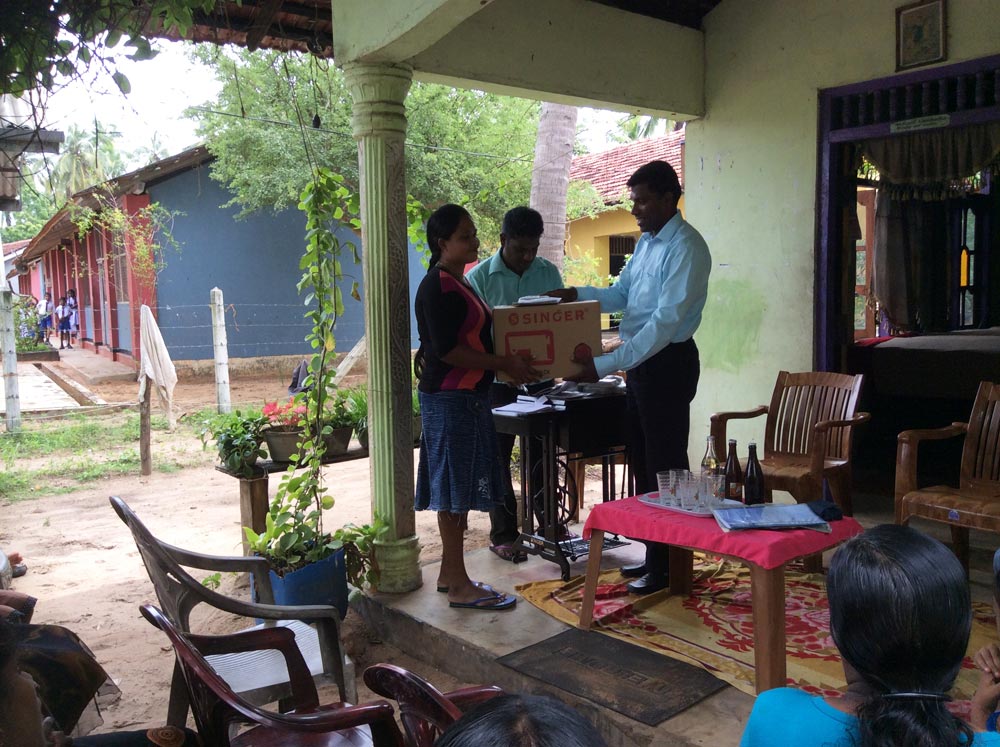
Thirikkapallama
In Thirikkapallama Sea Bass culture had not been practiced. The SLTCP introduced this practice to the local community in Thirikkapallama. This has benefited 18 families from the area. Monetary support was given to the construction and function of a large pen. 10 sewing machines and training have been given to the women in the village.
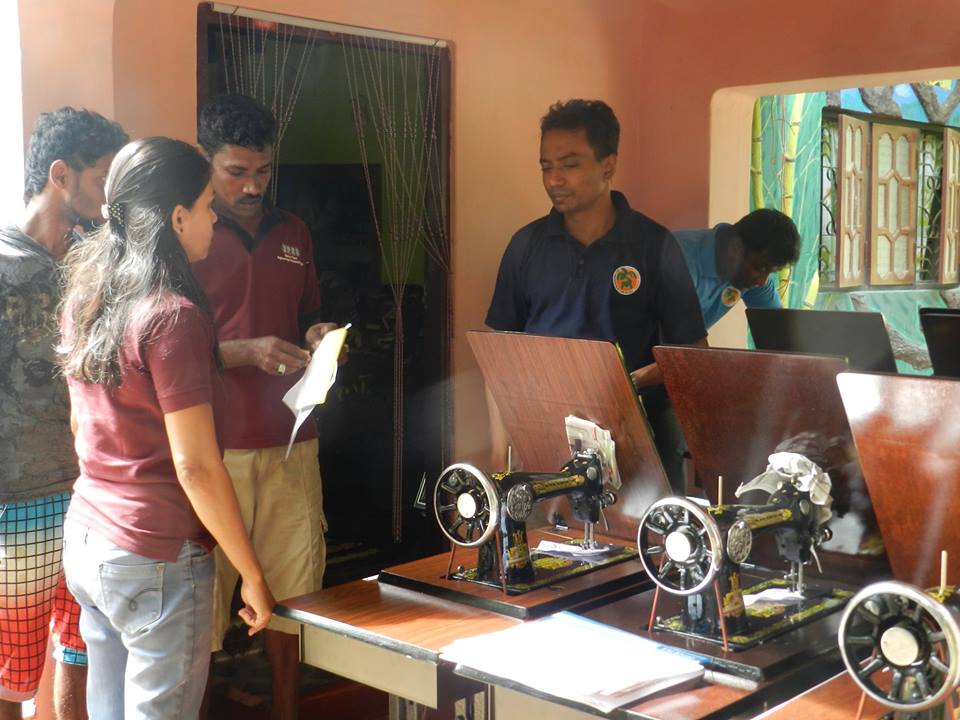
Kandakkuliya
In Kandakkuliya, the SLTCP has launched a batik training programme as requested by the residents. We donated a water tank for the school children in one of the rural schools.
